
If it’s accompanied by sweating
You should not be breaking out in a sweat due to pain. “Pain associated with sweating is always an indication of something bad,” says Cwanza A. Pinckney, MD, an emergency physician in Pearland, TX. “Sweating is a clinical indicator that the body is under stress and that the bodies flight or fight system is activated and the body is in distress. This is an ER physician’s red flag for danger, even if symptoms seem vague or mild. Sweating and abdominal pain warrant further evaluation by an emergency provider,” she says. Discover seven reasons for abdominal pain that could signal a more serious condition.
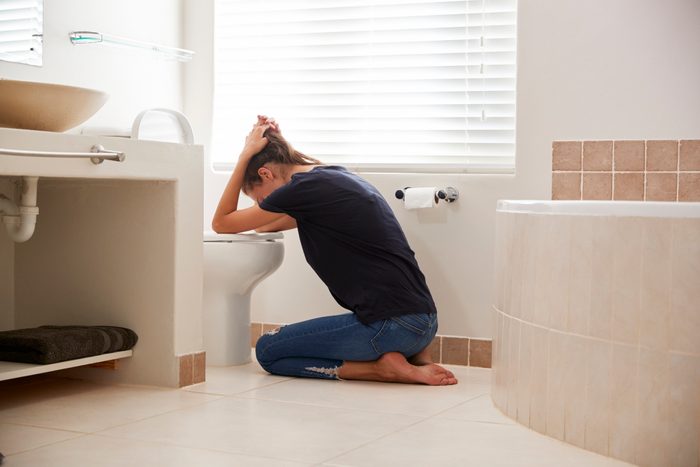
If blood is present
Vomiting or bloody diarrhea is a bad sign, says Samantha Nazareth, MD, a double board-certified gastroenterologist in New York City. “It’s important to note that blood can present as both red and black,” she says.
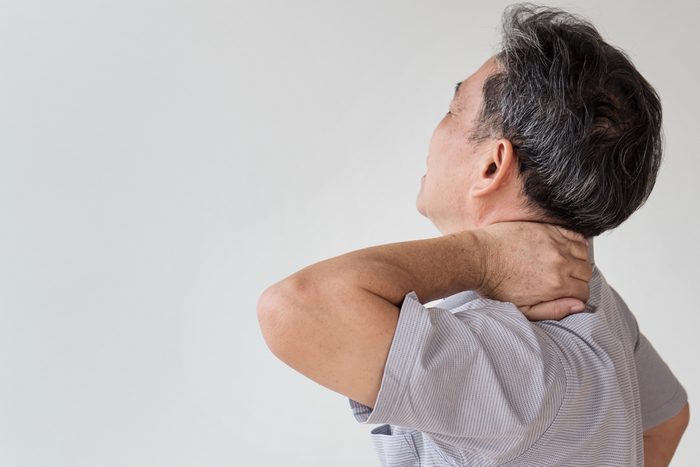
The pain radiates to another part of your body
Pain that isn’t contained to a specific part of the body could indicate something serious. “Radiation up to the neck, left shoulder, or left arm may indicate a potential heart attack,” says Tony Yuan, MD, a telemedicine physician with Doctor On Demand in Union City, California. “Radiation to the back may indicate inflammation of the pancreas or an ulcer.” Check out the seven silent signs of a heart attack.

You have a high fever
Pain that’s accompanied by a fever can be difficult to diagnose. “Fevers are a sign of possible infection, and, while some infections are serious, some, like stomach viruses can be milder and are not of serious concern,” says Jaclyn Kline, MD, an emergency medicine physician at the Children’s National Health System. “Stomach viruses often cause intermittent abdominal pain, vomiting, and diarrhea. The best treatment for this is drinking fluids to stay hydrated while the virus runs its course. If you have a high fever—higher than 102 F—with severe upper abdominal pain, you may have a more serious infection, and you should be concerned enough to see a doctor,” she says. These are the things you must do right away for stomach pain in the morning.
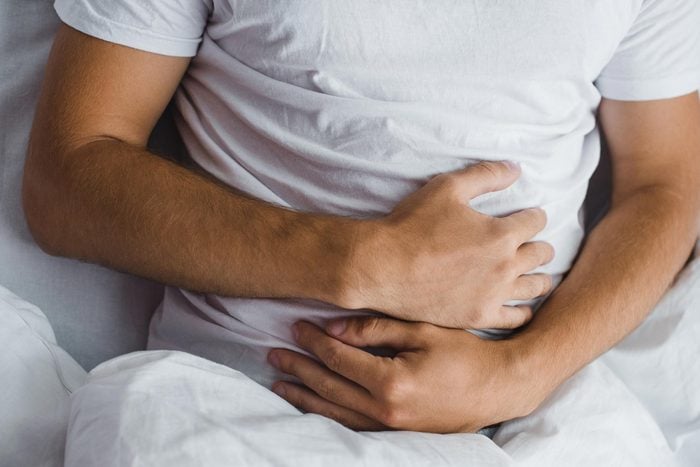
If it’s a tearing pain
The quality of the pain matters. “Tearing or ripping pain that feels like it is moving to the back is a warning sign for an aortic dissection which is a tear in the large artery that takes blood filled with oxygen to the rest of the body,” Dr. Pinckney says. “Without quick diagnosis and intervention, an aortic dissection can cause disability and in many cases death,” she says.
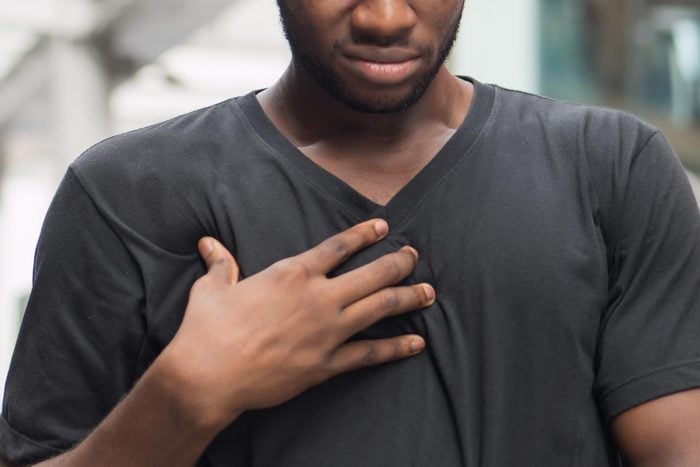
If you can’t get relief
Acid reflux is a common cause of pain—give over-the-counter medications to see if they help. “If the pain is milder and seems to occur after eating, particularly after eating a larger meal or foods like chocolate, coffee, or spicy foods, it may be heartburn and could be treated at home,” Dr. Kline says. “The pain from heartburn can be strong, but if it goes away with antacid medications, you should be reassured. If you notice that certain foods seem to make you feel pain, you should avoid them,” she adds. You may want to try some of these home remedies for heartburn.
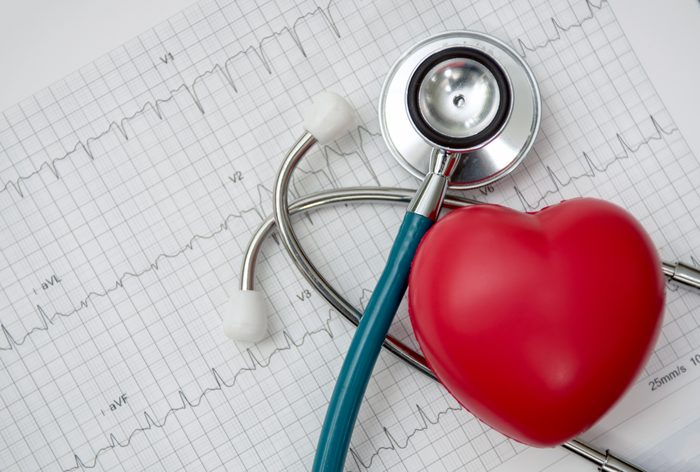
Your medical history is worrisome
Depending on your health history, a “just-in-case” trip to the ER for any abdominal pain could be in order. “Patients who have a history of heart disease, diabetes, aneurysms, abdominal surgeries, traumatic injury, or past GI bleeding should have upper abdominal pain evaluated by their physician or an emergency physician,” says Rema S. Johnson, MD an emergency medical doctor with AMITA Health based in Hoffman Estates, IL. And don’t wait, she stresses: “A life-threatening condition could be developing,”

You’re short of breath
Despite the pain, you should be able to breathe. “Shortness of breath or feeling faint are warning signs that a patient should be evaluated ASAP,” Dr. Nazareth says. Breathlessness could indicate cardiac trouble or other deadly conditions. Learn some effective ways to combat shortness of breath.
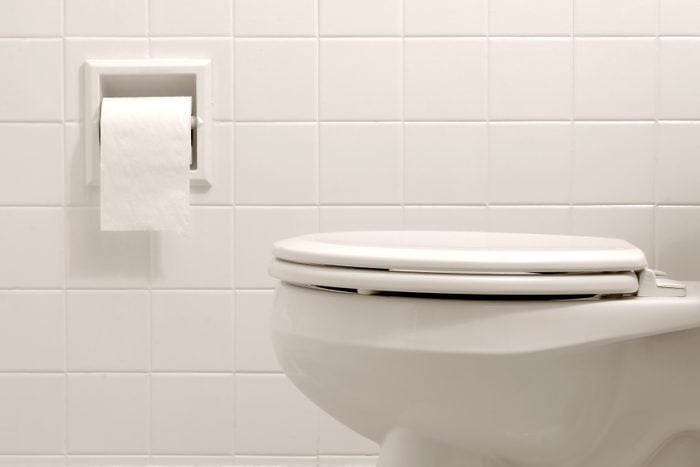
You’re vomiting—regularly
Vomiting could put you at risk of dehydration, but it can also indicate a more serious problem. “If the pain is accompanied by persistent vomiting, it could indicate an intestinal blockage,” Dr. Yuan says.
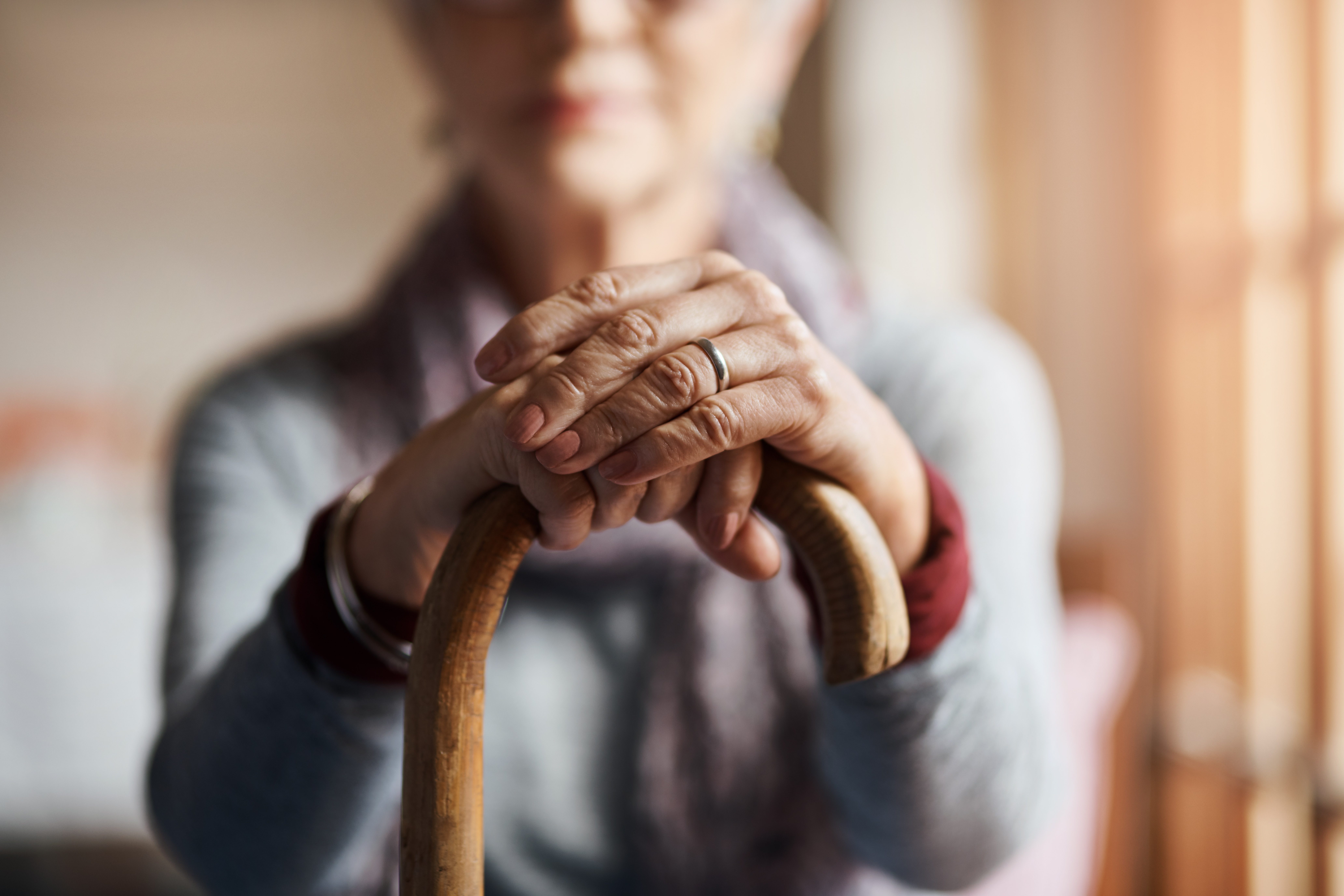
If you’re elderly
Age matters. “If the patient is elderly, they should consider that the upper abdominal pain may be the presentation of heart symptoms,” Dr. Johnson says. If you’re caring for an elderly parent—here are some tips on managing senior care.

If your skin turns yellow
Yellowing of your skin can signal a serious issue with your liver or gallbladder. “Many patients will describe a deep and severe pain in the upper abdomen which radiates to the right side within an hour or two of eating,” Dr. Pinckney says. This may be a gallbladder attack due to gallstones. Most gallbladder problems can be resolved without having to remove the organ.

If you don’t know what triggered it
Many times, you can point to the cause of pain—eating certain foods or a stomach bug that’s going around. But if you can’t, it’s definitely time to see the doctor. “Think about what you may have had to provoke the pain—alcohol, spicy foods, fatty foods,” Dr. Johnson says. “Seek medical care if the symptoms are not resolving,” she adds.
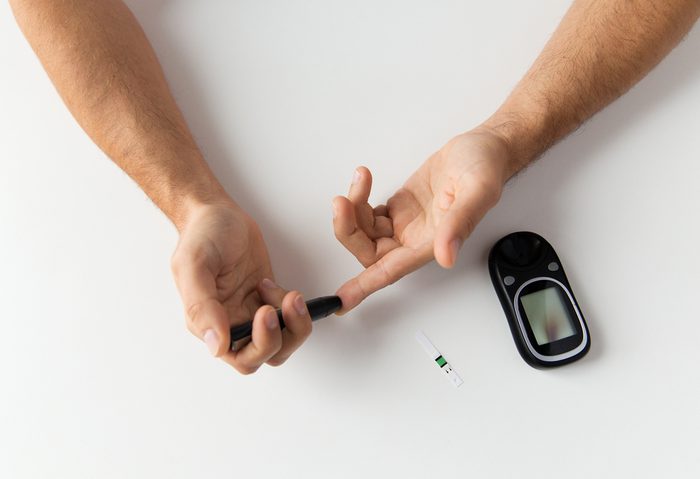
You’re diabetic
Diabetes puts you at an increased risk for heart disease or a stroke. “If you are having upper abdominal pain or discomfort and are diabetic, you could be having what’s known as a silent heart attack,” says Dr. Pinckney. “Many diabetics suffer from various forms of poor nerve function, and this is also true regarding nerves that supply the chest. Upper abdominal pain in a diabetic person is considered an equivalent to active chest pain in a nondiabetic and should be evaluated immediately.” Watch for these other diabetes complications.

If you develop extreme pain right after you eat or drink alcohol
Sometimes, you don’t feel great after a meal. But you shouldn’t be doubled over. “Pancreatitis, which is the inflammation of a small organ just above the stomach, can cause severe upper abdominal pain after eating,” Dr. Pinckney says. “Pancreatitis can be caused by gallstones, alcoholism, or for no certain cause but it’s described by patients as a deep and unbearable pain worsened by food or alcohol. Pancreatitis if left untreated can lead to severe disability and death,” she says.
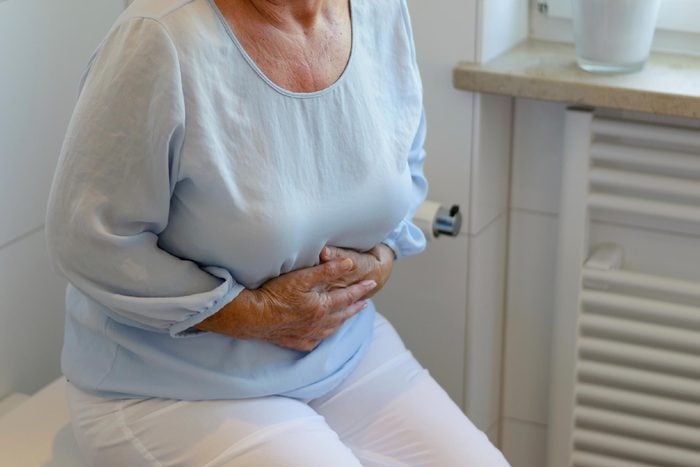
It keeps getting worse
Any abdominal pain should start easing up after a few days. If it doesn’t, it’s time to see the doctor. “Pain that does not resolve or is worsening should be evaluated regardless of the patient’s past medical history,” Dr. Johnson says. Don’t miss these things your stomach is trying to tell you.

